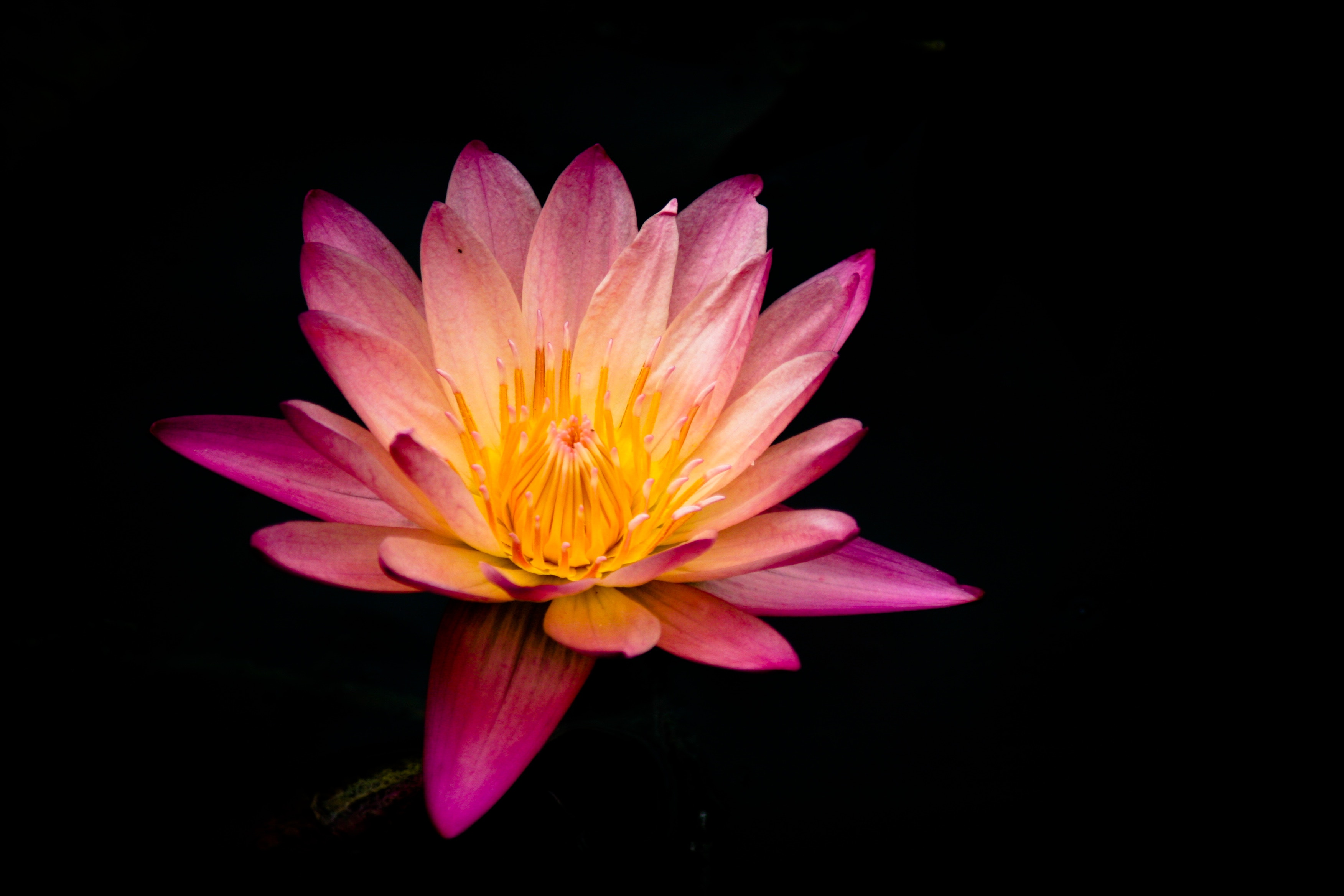You don’t have to spend much time with Mark and Melissa Epp to notice something different about them. They radiate positivity in a world that often seethes with negativity. The source of their abiding positivity is their 34-year commitment to their daily spiritual practice – Nichiren Buddhism. Here’s their story in their own words, shared with their permission:
What is your spiritual practice?
Mark: We chant together morning and evening every day. We recite a portion of the Lotus Sutra using these words: Nam myoho renge kyo. They translate this way:
(Nam) Return to or Fuse your life with
(myoho) the mystic law; those things in the universe we know exist but we cannot explain [and]
(renge) the simultaneity of cause and effect – this is the most basic law of the universe that for every cause there is a reaction — exemplified in Buddhism by the lotus blossom which simultaneously blooms and seeds
(kyo) [through this] sound
How does your spiritual practice relate to happiness?
Mark: The whole point of our spiritual practice is to achieve unshakable happiness. And the larger goal is to create world peace through individual happiness. Many people think they’ll be happy when they achieve a certain goal or if something negative in their lives changes. We define happiness differently, as a condition in which people have the ability to face their problems and create solutions for overcoming them – regardless of what the world throws at them.
Melissa: When happiness abides in the face of the horrible things that happen in life, we use our obstacles as springboards to our happiness. We find ways to turn poison into medicine.
I experienced this in the extreme a few years ago. I’m a voice actress, performer and fundraiser. Everything I do is with my voice, and I lost my voice as a result of a thyroid surgery that went bad. This struck to the core of my identity. My life-long fear of losing my voice became my reality, and I was depressed. But because of my practice there came a point where I could look at this accident or this obstacle as an opportunity for me to prove the power of my own life and the power of my practice. I kept practicing even though I could only chant by moving my lips at first. It’s not like it was magic. I had to go to speech therapy. I had to exercise. I had to rest. All those things. But that incorporated with this incredible positivity derived from my spiritual practice was the ultimate cause of my breaking through and regaining my voice. Today I have my own voice studio and I’m working full time as a voice actress.
How does your spiritual practice empower you to make a difference in the world?
Melissa: If you throw a pebble into a pond, it has a ripple effect. Even though you’re just one individual, one individual can change the destiny of all mankind.
Mark: Our practice is very proactive. It has two parts — chanting, essentially praying for what you want to have happen, but then taking action. Prayer without action is futile. Chanting increases our courage to act. There’s another idea in Buddhism, esho funi, and it’s a reflection of your life with your environment. So if you don’t like your environment Buddhism says look at yourself. You can’t change the shadow, you can only change the body. So as we become more enlightened, happier, and more fulfilled as human beings, our environment will reflect that.
Melissa: We really are faced with so much negativity in our world. I don’t want to live in fear. And my spiritual practice has strengthened my courage. Buddhism teaches that when you encourage the person in front of you, you’re actually encouraging yourself. No matter where I go, to the grocery store, in the parking lot, wherever…I make it my mission as a human to get someone to smile. Even if I don’t feel like smiling myself. So encouraging the person in front of me is something I make an effort to do daily.
Mark: The work I do as a management consultant aligns perfectly with my practice of Buddhism. My work is about strength development. It’s about helping people be defined by what they do well rather than defined by their weaknesses. And I do that every day. There’s a quote from Daisaku Ikeda that says this, “Without a doubt you possess your own jewel, your own innate talent inside of you.” The question is how can you discover that talent? I help people do that. Daisaku Ikeda goes on to say that the only way to know your full potential is to exert yourself to the very limits of your ability. Your true potential will emerge when you give everything you have to your studies, your sport, or your vocation. And I get to help people use their talents and stretch them to the limits of their ability every single day. That’s how I incorporate this practice into my daily life to make a difference.
We’re grateful to Mark Epp and Melissa Epp for sharing their story with us. Connect with them directly with questions about their individual practice. Learn more about Nichiren Buddhism at http://www.sgi.org/.


